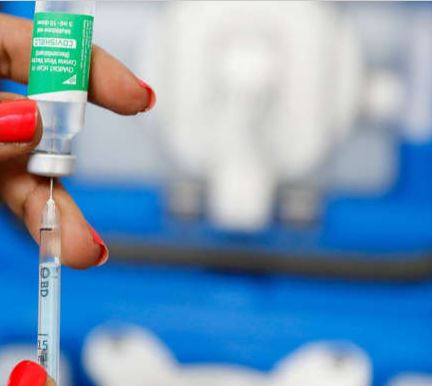Delta variant Can still be transmitted by people:
Individuals who become contaminated with the Delta variation even in the wake of being completely immunized may in any case pass the infection on, sabotaging any expectations of group invulnerability, new examination recommends.
Researchers at the University of Oxford discovered levels of the infection could be similarly as high in individuals who get COVID regardless of having the two punches as in the individuals who haven't been immunized.
Dr Koen Pouwels, one of the lead scientists of the examination, said: "The antibodies are better at forestalling serious sickness and are less compelling at forestalling transmission.
Researchers from the COVID-19 Infection Survey have led ordinary PCR tests on in excess of 700,000 arbitrarily chose individuals since December last year.
Until mid-May, when the Alpha variation was the predominant type of the infection, the antibodies were exceptionally compelling at halting contaminations.
In any case, from that point forward, a period when the more irresistible Delta variation has overwhelmed, the immunizations have been less ready to obstruct the infection.
Educator Sarah Walker, Chief Investigator for the Survey, said: "We don't yet have a clue how much transmission can occur from individuals who get COVID-19 in the wake of being inoculated - for instance, they might have significant degrees of infection for more limited timeframes.
"In any case, the way that they can have undeniable degrees of infection proposes that individuals who aren't yet inoculated may not be as shielded from the Delta variation as we trusted."
The specialists stress that true information shows that the immunizations are still exceptionally successful at diminishing clinic confirmation and demise.
Since volunteers in the examination had normal PCR swabs and immunizer tests the researchers had the option to screen invulnerability over the long run.
They tracked down that fourteen days after the second portion the Pfizer punch was 85% viable at forestalling PCR-affirmed disease, impressively better than the AstraZeneca shot, which was 68% viable.
"These two antibodies appear as though they are working in altogether different manners," said Professor Walker.
"However, it's the paces of hospitalizations and passings that we truly need to watch out for."
The examination has been distributed as a pre-print and has not been peer-investigated.
Dr Alexander Edwards, Associate Professor in Biomedical Technology at the University of Reading, said the outcomes were "convincing".
"There are inconspicuous contrasts between various antibody types, and a few changes after some time, however they all work splendidly.
"It stays crucial to recall that regardless of whether twofold poked, you can in any case get contaminated and pass the infection on."
Prof Paul Hunter, Professor in Medicine at the University of East Anglia, said: "There is presently a considerable amount of proof that all antibodies are greatly improved at diminishing the danger of extreme sickness than they are at decreasing the danger from disease.
"The principle worth of inoculation is in diminishing the danger of extreme infection and demise and the proof accessible shows that security endures longer against serious illness than against gentle sickness and all current UK immunizations are awesome at this even against the Delta variation."





0 Comments